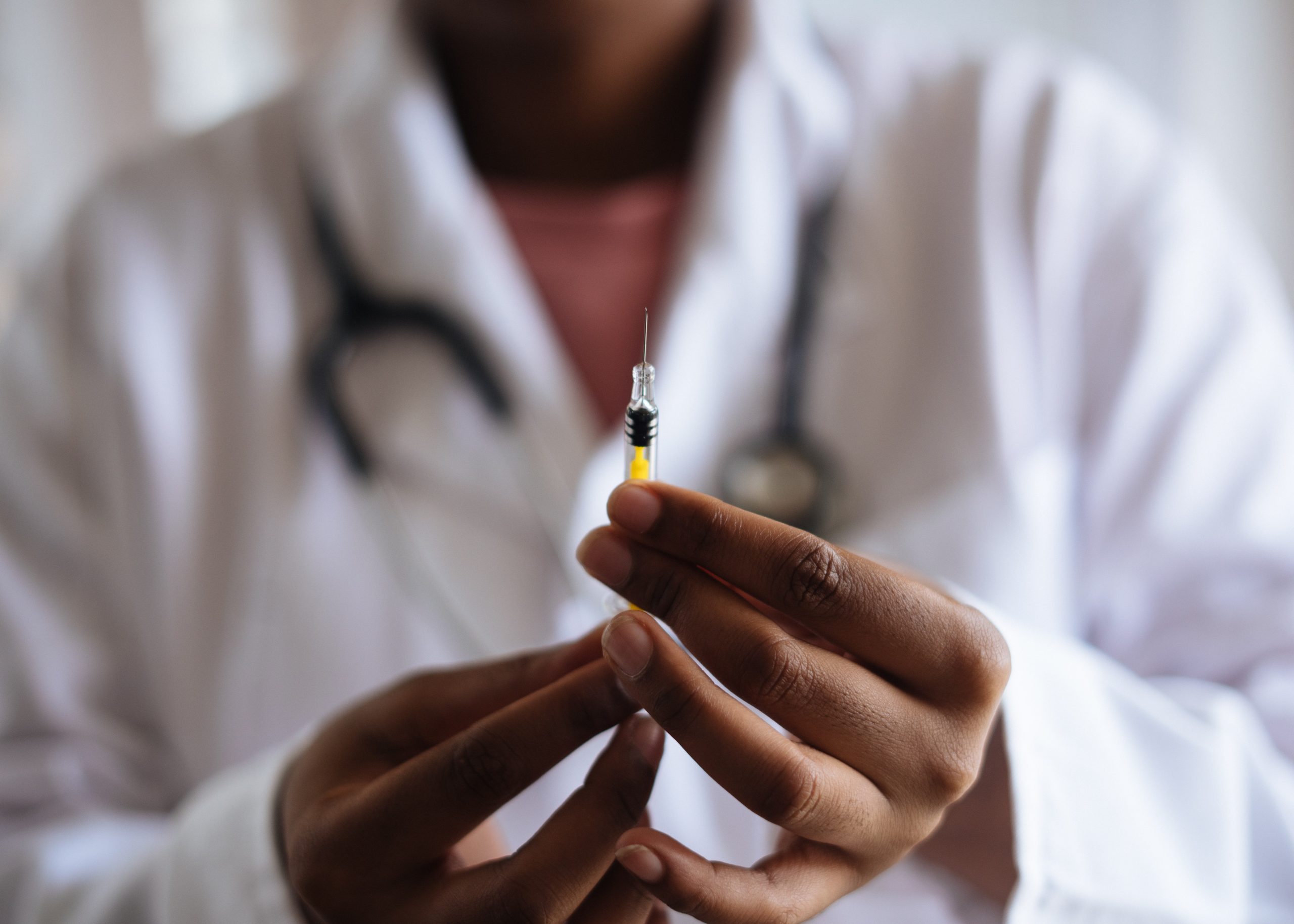Winter is coming, and so are the viruses that we’ve come to know as the triple-demic (flu, RSV, COVID). We must reflect on, learn from the hard-learned lessons, and address the unique struggles faced by the Hispanic population during the COVID-19 pandemic.
Effective COVID-19 and flu vaccines offer the hope of a healthier winter. But there are still obstacles keeping the Hispanic community from a healthier winter: barriers to healthcare, vaccine safety concerns, and the continuous spread of vaccine misinformation–unintentional false or inaccurate information. The experience with COVID-19 is a cautionary tale; it reminds us of the urgent need to reinforce the protection offered by vaccines by addressing harmful misinformation and preventing unnecessary illness and death.
The numbers during COVID-19 paint a sobering picture. Hispanic people have consistently faced higher infection and death rates than White people. Additionally, Hispanic people under 50 who become infected with influenza are more likely to be hospitalized or be admitted to the ICU than White people. What’s important to know is that these differences in outcomes, these disparities, are not because of differences in biology. These disparities come from things that increase the risk of exposure to the virus: limited access to primary care, not having paid sick leave, lack of health insurance–structural inequities.
What makes these disparities worse is the spread of misinformation about vaccine safety and effectiveness. How confident someone is in vaccine safety predicts the willingness to get the flu and COVID-19 vaccine in Hispanic people. Vaccine misinformation has led to decreased immunization rates, leading to preventable deaths in the US and globally. The consequences of misinformation are so severe that the Surgeon General of the United States Declared misinformation an “urgent threat” in 2021 and set guidance on “how to combat misinformation in our communities.”
Unfortunately, vulnerable racial and ethnic groups are often the targets of misinformation campaigns. And not having easy access to culturally relevant information or in their language only adds to the barriers to getting reputable and accurate information. This is most noticeable with the lack of reliable bilingual/bicultural content addressing vaccine safety concerns. The lack of social media safeguards increases the risk that Hispanic communities will get, consume, and share misinformation online. Focusing on addressing misinformation in this community is critical to decreasing the consequences of misinformation campaigns in the US. However, the spread of bilingual/bicultural, accurate messaging can bring about challenges if there is a delay in its availability.
👉🏽 Illinois has higher COVID vulnerability than most states, with 34% of the population in a high vulnerability area.
Health professionals and communities must work together to address the consequences of misinformation, making disparities worse. They must work to protect the public against misinformation. They must advocate for funding for research on misinformation to develop effective countermeasures. They must emphasize the importance of promoting digital literacy and consuming information in an informed way. There is hope, research teams are actively developing training programs for promotores de salud, trusted community health workers who have played a key role in addressing COVID-19 disparities. Leveraging these trusted community messengers and the existing interpersonal networks is critical to ensuring the integrity of information.
We need to develop innovative ways to identify and debunk misinformation while promoting digital literacy and informed consumption of information. We must commit to equitable access to vaccines and address vaccine misinformation. We can empower communities to make informed choices to protect all individuals’ health regardless of their background or ethnicity. We can work together to eliminate health disparities and ensure there are more winters, healthy winters, to come.
Cover Photo by RF._.studio
ABOUT THE AUTHORS:
Marla Clayman, PhD, MPH: Dr. Marla Clayman is a Research Health Scientist, Center for Organization and Implementation Research (CHOIR), Bedford, MA, Veterans Health Administration.
She is also an Associate Professor, Department of Population and Quantitative Health Sciences, UMass Chan School of Medicine.
Dr. Clay man is a Senior Health Communication Specialist, Illinois Medical Professionals Action Collaborative Team (IMPACT).
Marina Del Rios, MD, MS: Marina Del Rios, MD, MS is Tenured Associate Professor in Emergency Medicine at the University of Iowa – Carver College of Medicine.
She is a member of the Illinois Unidos Advisory Board and is an Outreach Liaison with the Illinois Medical Professionals Action Collaborative Team.
Dr. Del Rios has close to 10 years of experience conducting research in resuscitation science, population health, and health disparities and has received competitive funding from the National Institutes of Health, the American Heart Association, Medtronic Philanthropy, and the Pritzker Traubert Family Foundation.
She currently leads a federally-funded multi-institutional research team to address misinformation about vaccines in Latine communities.
Susan Lopez, MD: Dr. Susan Lopez is an Assistant Professor | Division of Hospital Medicine | Department of Internal Medicine.
She is an Assistant Professor | Division of Community and Global Health Equity | Department of Internal Medicine.
Dr. Lopez is an Assistant Dean of Diversity, Equity, and Inclusion | Graduate Medical Education | Rush University Medical Center.
She is also an Action Fellow | Illinois Medical Professionals Action Collaborative Team and Co-Chair | National Hispanic Medical Association Chicago Chapter.
Regina Royan, MD MPH: Dr. Regina Royan is an Outreach Liaison with the Illinois Medical Professionals Action Collaborative Team. She is also an Assistant Professor of Emergency Medicine, University of Michigan.
